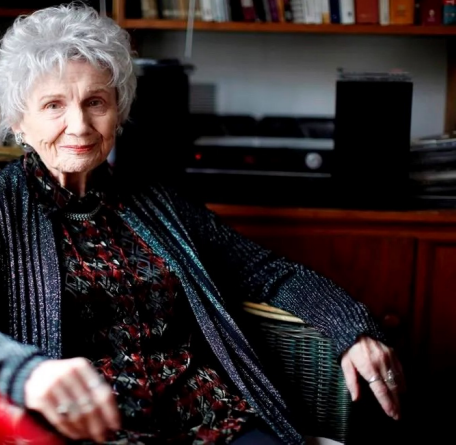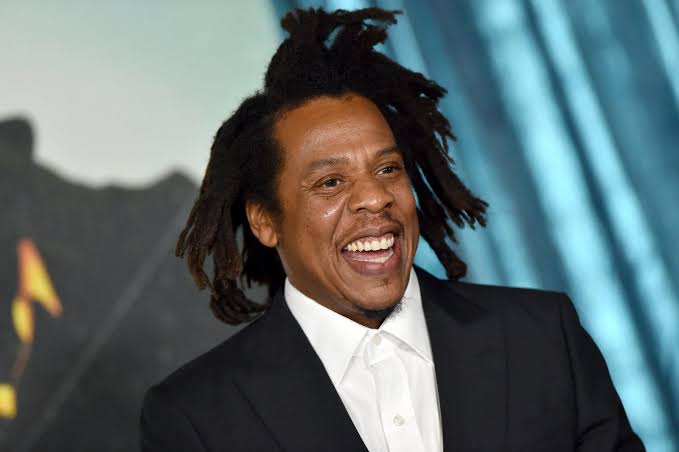Lifestyle
Nobel Laureate Alice Munro’s Daughter Reveals Years Of Abuse

Andrea Skinner, the daughter of Nobel laureate Alice Munro, has bravely come forward to reveal a long-held family secret: she suffered years of sexual abuse at the hands of her stepfather, beginning when she was just nine years old. In a shocking twist, Skinner alleges that her mother, the celebrated author, was aware of the abuse but chose to stay
with her husband.
Skinner’s revelation sheds a stark light on the dark underbelly of a family that, from the outside, seemed to be the epitome of literary success and domestic bliss. Munro, who passed away in 2013, was hailed as one of the greatest short story writers of her generation, winning the Nobel Prize in Literature in 2013.
According to Skinner, the abuse began in the early 1970s, when her stepfather, Gerald Fremlin, moved into the family home in Ontario, Canada. She recalls feeling isolated and vulnerable, with no one to turn to for help. “I was so alone, and I didn’t know what to do,” Skinner said in an interview with the BBC. “I felt like I was the only one who knew what was happening.”
Skinner alleges that the abuse continued for years, with Fremlin using his position of power and control to manipulate and exploit her. She describes feeling trapped and scared, unable to escape the clutches of her abuser. “I felt like I was living in a nightmare, and I couldn’t wake up,” she said.
But what is perhaps most shocking about Skinner’s revelation is that her mother, Alice Munro, was aware of the abuse but chose to stay with Fremlin. Skinner alleges that Munro knew about the abuse as early as 1976 but remained silent, prioritizing her marriage and literary career over her daughter’s well-being.
Skinner’s allegations raise difficult questions about the responsibility of family members to protect one another, and the ways in which power and privilege can be used to silence and exploit vulnerable individuals. They also highlight the long-lasting impact of childhood trauma, which can reverberate throughout a person’s life.
Skinner’s decision to come forward is a testament to her strength and resilience, and a reminder that even in the darkest of times, there is always hope for healing and redemption. Her story is a powerful reminder that the truth will always come to light, no matter how hard we try to keep it hidden.
In the end, Skinner’s revelation is a tribute to the enduring power of the human spirit, and a reminder that even in the face of unimaginable trauma, we can always find a way to heal, to forgive, and to move forward. As Skinner herself said, “I’m not a victim, I’m a survivor. And I’m not alone.”
Lifestyle
The Pitt, The Studio Dominate 2025 Emmy Awards

The Pitt, The Studio Dominate 2025 Emmy Awards
Hollywood’s biggest television stars gathered on Sunday night for the 2025 Emmy Awards, where two productions, The Pitt and The Studio, emerged as the night’s biggest winners.
The Pitt, a gripping medical drama set in a bustling emergency room, clinched the coveted Best Drama Series, while The Studio, a satirical comedy about Hollywood politics, not only won Best Comedy Series but also shattered Emmy records with a clean sweep across multiple categories.
In a defining moment of the ceremony, veteran actor Noah Wyle earned his first-ever Emmy after decades in television, winning Lead Actor in a Drama Series for his performance in The Pitt.
Wyle, visibly moved, dedicated the award to healthcare workers worldwide, describing the show’s success as “a reflection of the courage and sacrifice of those who save lives every day.”
Seth Rogen’s The Studio proved unstoppable in the comedy category, taking home 13 trophies — the highest number of wins for a comedy series in a single year, according to the Television Academy.
Rogen, who co-created and starred in the show, also walked away with Lead Actor in a Comedy Series, his first Emmy.
He called the triumph “the proudest moment” of his career.
Critics have hailed The Studio for its sharp wit and insider satire, offering audiences a humorous but piercing look into Hollywood’s inner workings.
The series’ record-breaking feat now places it among the most celebrated comedies in Emmy history.
Industry watchers say the dual success of The Pitt and The Studio signals a shift in Hollywood storytelling, with both shows reflecting real-world struggles and triumphs in institutions — healthcare and entertainment — that resonate with global audiences.
The victories came against formidable contenders including Severance and Abbott Elementary, underscoring the appetite for fresh narratives that balance cultural depth with entertainment.
As the night drew to a close, the Emmy spotlight rested squarely on The Pitt and The Studio — productions that not only entertained millions but also reinforced television’s enduring power to mirror society.
Lifestyle
Jay-Z Emerges World’s Richest Musician with $2.5bn Net Worth — Forbes

Jay-Z Emerges World’s Richest Musician with $2.5bn Net Worth — Forbes
American rap icon and business mogul, Sean Carter, better known as Jay-Z, has been declared the world’s richest musician by Forbes with an estimated net worth of $2.5 billion.
The Roc Nation founder’s fortune cuts across multiple ventures, including his luxury champagne brand, Armand de Brignac (Ace of Spades), cognac label D’Ussé, and his stakes in real estate, hospitality, technology, and startups.
He also reaped huge gains from the sale of music streaming platform Tidal and his former clothing line, Rocawear.
Jay-Z’s rise to the top further cements his reputation as not only a cultural force but also one of the most successful music entrepreneurs globally.
On the female side, American pop star Taylor Swift retained her crown as the richest female musician, with a net worth of $1.6 billion.
Forbes noted that Swift remains the first artist in history to attain billionaire status solely from music and touring earnings.
Lifestyle
Single Mothers Can’t Raise Boys Into ‘Proper Men’ – Jim Iyke

Single Mothers Can’t Raise Boys Into ‘Proper Men’ – Jim Iyke
Nollywood star, Jim Iyke, has stirred controversy with his recent remarks on parenting, insisting that single mothers cannot raise a boy into a “proper man” without the presence of a male figure.
Speaking during an interview with Okay 101.7 FM in Accra, Ghana, the actor argued that women are naturally built to nurture but lack the disciplinary balance needed to raise boys into men.
“A woman can’t raise a man. You can’t, you’re not built for it. A single mother cannot raise a man properly. You need a male influence – go get your brother that’s doing well or your father or even any man that you trust. There has to be a male presence in it [raising a boy child],” Iyke said.
He further maintained that boys require strict guidance from men in order to grow into disciplined adults.
“Because women are naturally built to nurture, to love. And then what you’re going to raise is a very weak man? He is going to be everything like the men that left you. You need somebody that would discipline him, tell him ‘No’ as often times as possible, and put him in the grind,” he added.
Iyke’s remarks have since triggered heated debates across social media, with some agreeing with his perspective while others accused him of undermining the struggles of single mothers who successfully raise responsible children without male support.
The actor, who has often been outspoken on social issues, did not back down on his position, stressing that the absence of a male role model leaves a critical gap in raising boys.
-

 Extra4 days ago
Extra4 days agoUS Veteran, Walter Obi Urges Compassionate Leadership at Valentine’s Event in US
-

 Diaspora4 days ago
Diaspora4 days agoZenith Bank to Host Diaspora Engagement, Banking Services for Nigerians in Texas
-

 Analysis4 days ago
Analysis4 days agoIs Nasir El-Rufai on the Peril? By Alabidun Shuaib AbdulRahman
-

 News4 days ago
News4 days agoNigerian Govt Raises Alarm Over Illegal Recruitment of Its Citizens into Foreign Wars
-

 Business4 days ago
Business4 days agoA Home Worth Coming Back To: The Signature Residence by Mshel Homes
-

 News4 days ago
News4 days agoIran Claims Breakthrough on ‘Guiding Principles’ in Nuclear Talks with US










